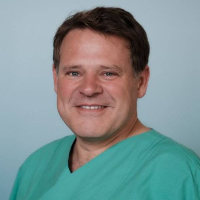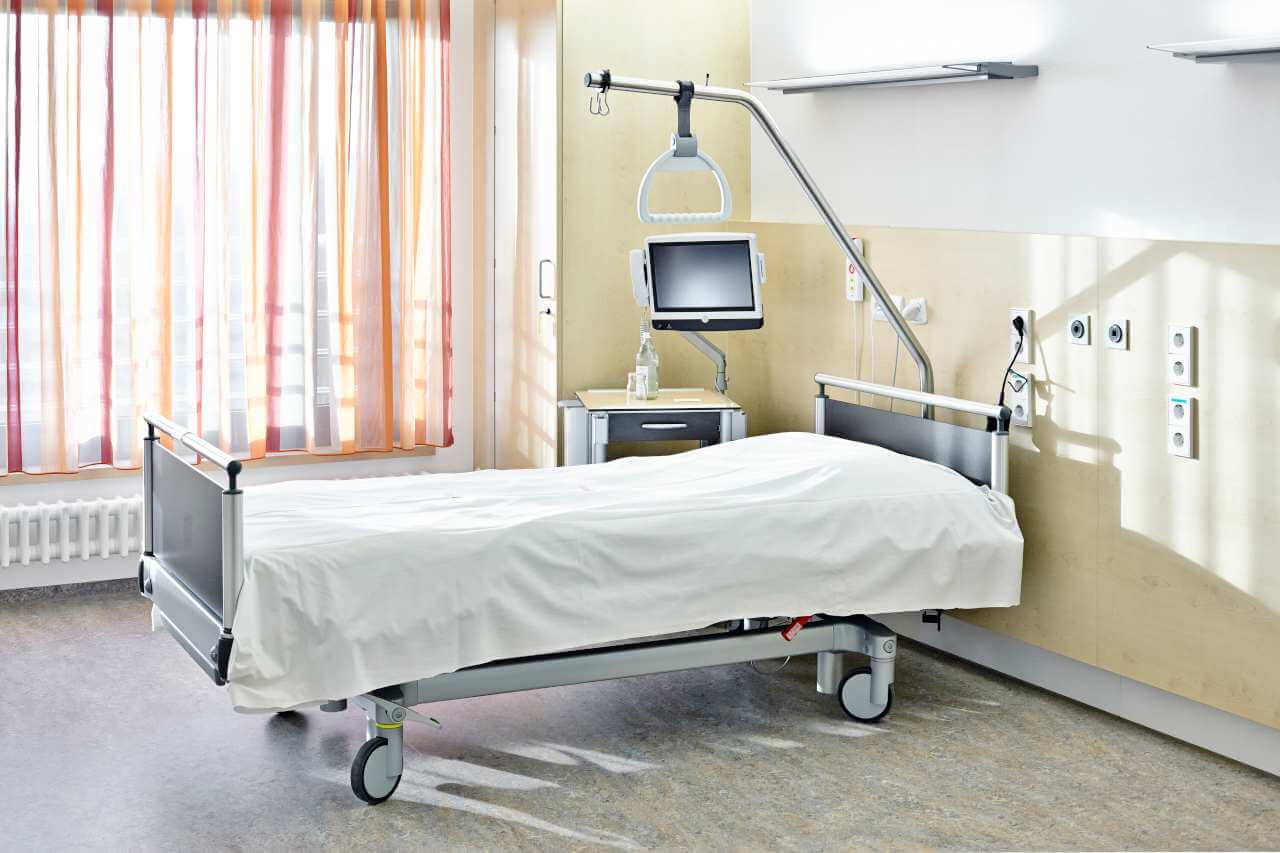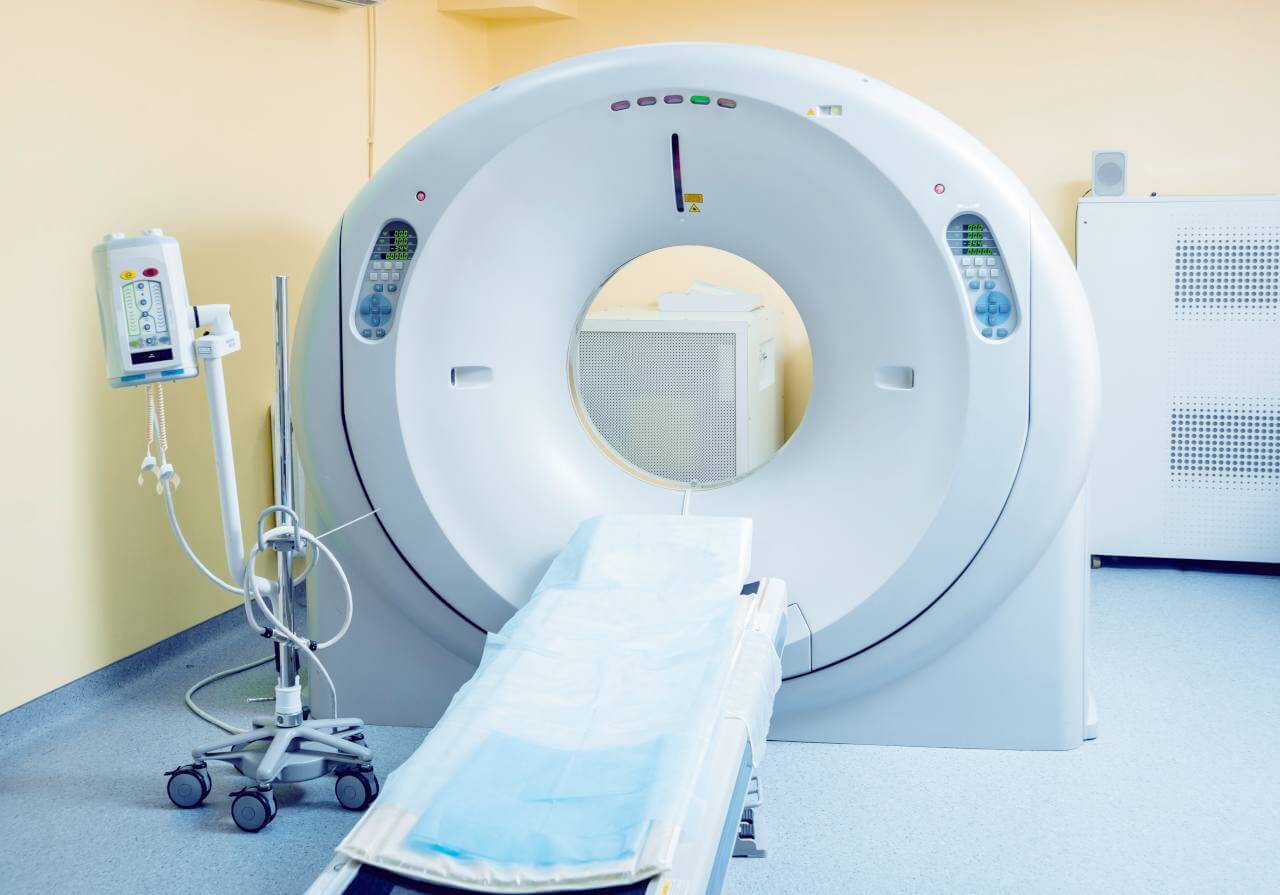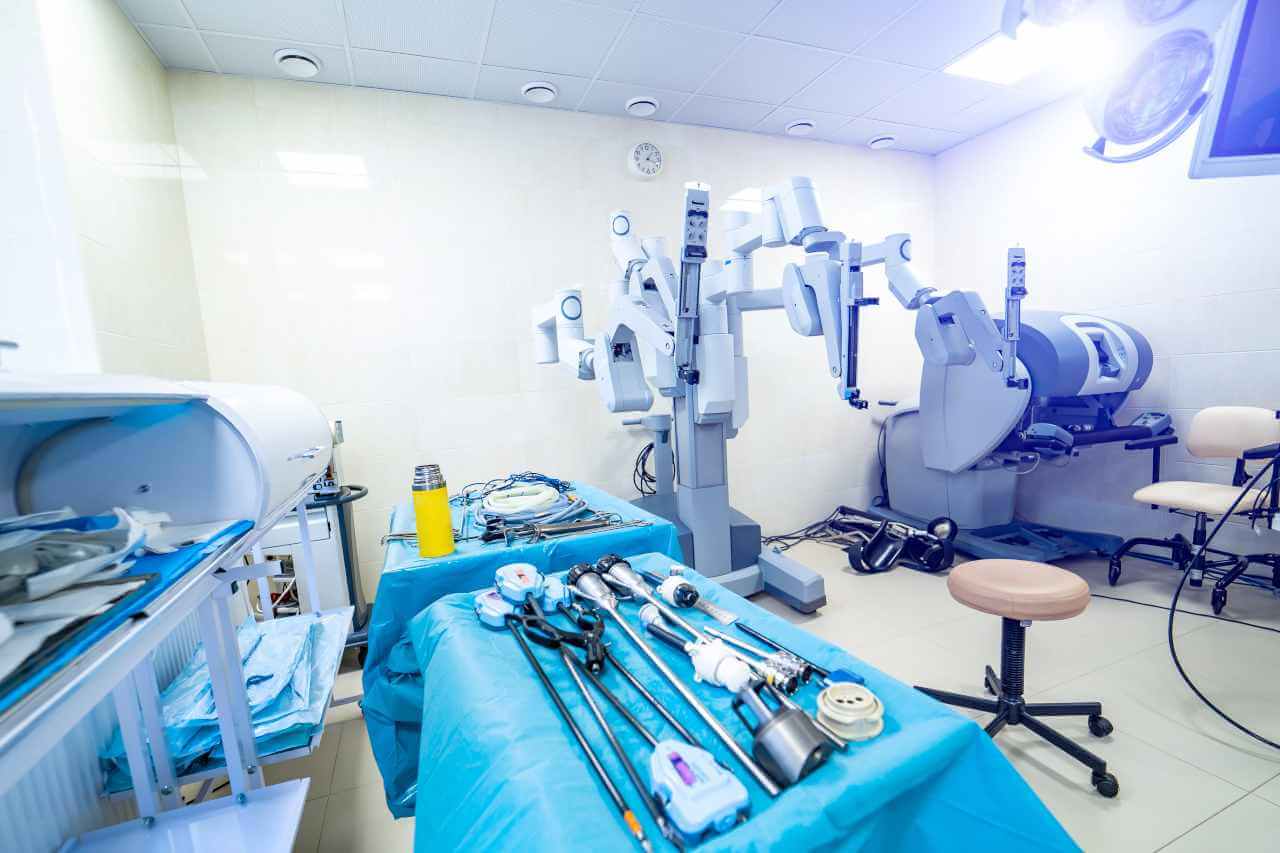
The program includes:
- Initial presentation in the clinic
- clinical history taking
- physical examination
- laboratory tests:
- complete blood count
- biochemical analysis of blood
- TSH-basal
- tumor markers
- inflammation indicators
- indicators of blood coagulation
- ultrasound scan of the abdomen
- CT/MRI scan of the abdomen
- colonoscopy with biopsy (if indicated)
- preoperative care
- da Vinci resection of affected parts of the intestine
- histological and immunohistochemistry analysis
of the removed tissues - consultation on nutrition
- symptomatic treatment
- control examinations
- cost of essential medicines and materials
- nursing services
- full hospital accommodation
- explanation of future recommendations
How program is carried out
During the first visit, the physician will conduct a clinical examination and go through the results of the available diagnostic tests. After that, you will undergo the necessary additional examinations, such as the assessment of liver and kidney function, abdominal ultrasound scan, CT scan and MRI. Based on the results of an additional examination, the physician will clarify the stage of the oncological process, choose the volume of the intervention and the type of anesthesia.
Surgery with the da Vinci robot starts with general anesthesia. After anesthesia, the surgeon makes small incisions on the anterior abdominal wall, through which he inserts the da Vinci robot manipulators and a video camera into the abdominal cavity. With the help of manipulators, the doctor ligates large blood vessels and removes the affected areas of the intestine. The video camera continuously transmits a three-dimensional image of the surgical area in 12-fold magnification to the monitor. The surgeon installs drainage into the abdominal cavity and finishes the operation.
The surgery with the da Vinci robotic system significantly reduces the risk of bleeding during the operation and in the postoperative period, and the magnification of the operating field allows the surgeon to remove the smallest malignant foci.
After the completion of the operation, you will be transferred back to the ward, under the supervision of the attending physician and nursing staff. Due to the minimal invasiveness of the operation and the short duration of general anesthesia, you will not need to stay in the intensive care unit for a long time.
Finally, the attending physician will evaluate the results of control examinations, schedule the date of discharge from the hospital and give you detailed recommendations for further follow-up and treatment.
Required documents
- Medical records
- Esophagogastroduodenoscopy (EGD), MRI/CT scan (not older than 3 months)
- Biopsy results (if available)
Service
You may also book:
 BookingHealth Price from:
BookingHealth Price from:
About the department
The Department of General and Abdominal Surgery, Hepatopancreatobiliary Surgery, Colorectal Surgery, Hernia Surgery and Endocrine Surgery at the Asklepios Hospital Altona Hamburg provides the full range of medical services in the areas of its specialization. The medical center performs surgery for diseases of the stomach, colon, esophagus, pancreas, liver, gallbladder, and biliary tract. The department's surgeons also operate on patients with hernias, rectal diseases, anal pathologies, thyroid, parathyroid, and adrenal gland disorders. The specialists have rich clinical experience in the surgical treatment of oncological diseases. More than 80% of surgical interventions are performed using sparing minimally invasive techniques. In addition, the department holds leading positions in the field of da Vinci robotic surgery. The health facility is part of the specialized da Vinci Robotic Surgery Center Hamburg, equipped with the da Vinci Xi system. The team of the department's doctors brilliantly performs robot-assisted interventions for rectal, sigmoid colon, esophageal, and pancreatic malignancies, as well as gastroesophageal reflux disease, diverticular disease, and rectal prolapse. When treating patients diagnosed with cancer, the doctors adhere to an interdisciplinary approach. Twice a week, a tumor board is held here with the participation of surgeons, gastroenterologists, oncologists, radiologists, and radiation therapists. Considering the clinical case of a patient by the interdisciplinary board allows for the development of the most effective treatment regimen, taking into account the slightest details.
The department is headed by Prof. Dr. med. Daniel Perez, a highly qualified surgeon with more than 20 years of successful clinical practice. Prof. Perez is one of the pioneers of da Vinci robotic surgery. He has vast experience in performing such operations and has conducted robotic surgery training for specialists in Germany and in many other countries abroad. Prof. Daniel Perez has a special clinical interest in abdominal cancer surgery and is a Fellow of the European Board of Surgery (FEBS) in Brussels in the field of cancer surgery.
The department's clinical priority area is surgery for gastric diseases, in particular gastric cancer, peptic ulcer disease, gastroptosis, and gastroesophageal reflux disease. Patients with the above-mentioned diseases are diagnosed with the participation of gastroenterologists because gastroscopy (endoscopic examination) is an integral part of the diagnostic process. If gastric cancer is confirmed, surgery to resect the malignant neoplasm or part of the affected organ is the first-line treatment. As for the treatment of gastric ulcers and gastroesophageal reflux disease, these diseases are mostly well treated with drug therapy. A surgical intervention may be required only at advanced stages. The department's specialists operate on patients with gastric diseases using sparing minimally invasive techniques. It is worth noting that the hospital is one of the few in Germany that specializes in da Vinci robotic surgery for gastroesophageal reflux disease.
The da Vinci robotic device consists of four main parts: the operating table, robotic arms, an imaging system, and a control console. Each stage of the surgical procedure is controlled by a specially trained surgeon, who is sitting at the control console of the da Vinci robot, sees the surgical field on the monitor in multiple zooms in 3D mode, and gives the robotic system commands, which it carries out with pinpoint accuracy. The use of robotic surgery ensures high precision and low trauma rates, resulting in reduced risks of blood loss, mild pain in the postoperative period, almost zero infection risks, and a significantly shorter hospital stay after surgery.
The department has gained successful experience in the treatment of peritoneal carcinomatosis using the innovative method of cytoreductive surgery in combination with HIPEC (hyperthermic intraperitoneal chemotherapy). Peritoneal carcinomatosis is characterized by the appearance of single or multiple malignant tumors in the abdominal cavity against the background of the progression of stomach cancer, colon cancer, rectal cancer, etc. In some situations, the cause of the development of pathology may be directly peritoneal mesothelioma. The department’s surgeons have the necessary technical resources and professional skills to perform cytoreductive surgery in combination with HIPEC. The method involves a maximum surgical reduction in the size of tumors, followed by rinsing the abdominal cavity with a hot solution of chemotherapy drugs. This method makes it possible to achieve long-term remission or a complete cure from oncopathology, while before its advent, patients with peritoneal carcinomatosis were considered hopeless.
Hepatopancreatobiliary surgeons treat liver cancer, pancreatic cancer, liver cysts, portal hypertension, and acute and chronic pancreatitis. The specialists also operate on patients with gallbladder and biliary tract diseases such as cholecystitis, cholelithiasis, and gallbladder cancer. The department's surgeons prefer minimally invasive techniques. When a cancer diagnosis is confirmed, a treatment regimen will be developed at an interdisciplinary tumor board with the participation of surgeons, gastroenterologists, oncologists, radiation therapists, and radiologists. The specialists jointly study the patient’s clinical data and determine the optimal set of therapeutic measures for their clinical situations.
Colorectal surgery is another important area of expertise for the department's doctors. The specialists successfully perform surgery for hemorrhoids, fecal incontinence, anal abscesses, anal fissures, rectal cancer, and rectal prolapse. A large proportion of surgical interventions for proctologic diseases are performed using minimally invasive techniques. If indicated, the surgeons of the department also perform da Vinci robotic surgery for rectal cancer and rectal prolapse.
The department's range of medical services includes the following:
- General and abdominal surgery
- Surgical treatment of stomach diseases: stomach cancer, gastric ulcer, gastroptosis, and gastroesophageal reflux disease
- Surgical treatment of colon diseases: colon cancer, Crohn's disease, ulcerative colitis, and diverticular disease
- Surgical treatment of esophageal cancer
- Surgical treatment of peritoneal carcinomatosis
- Hepatopancreatobiliary surgery
- Surgical treatment of liver diseases: liver cancer, liver cysts, and portal hypertension
- Surgical treatment of gallbladder and biliary tract diseases: gallbladder cancer, cholecystitis, and cholelithiasis
- Surgical treatment of pancreatic diseases: pancreatic cancer and acute and chronic pancreatitis
- Colorectal surgery
- Surgical treatment of hemorrhoids
- Surgical treatment of fecal incontinence
- Surgical treatment of anal abscesses and fissures
- Surgical treatment of rectal cancer
- Surgical treatment of rectal prolapse
- Hernia surgery
- Surgical treatment of inguinal hernias
- Surgical treatment of umbilical hernias
- Surgical treatment of femoral hernias
- Surgical treatment of incisional hernias
- Surgical treatment of diaphragmatic hernias
- Surgical treatment of Spigelian hernias
- Surgical treatment of pelvic floor hernias
- Surgical treatment of internal hernias
- Endocrine surgery
- Surgical treatment of thyroid diseases: hyperthyroidism, goiter, and thyroid cancer
- Surgical treatment of adrenal cancer
- Surgical treatment of hyperparathyroidism
- Other medical services
Curriculum vitae
Prof. Dr. med. Daniel Perez has been serving as the Head Physician of the Department of General and Abdominal Surgery, Hepatopancreatobiliary Surgery, Colorectal Surgery, Hernia Surgery and Endocrine Surgery at the Asklepios Hospital Altona Hamburg since April 1, 2022. Prof. Perez is one of the pioneers in performing robot-assisted interventions using the da Vinci Xi system in Germany and in the international medical arena. The specialist provided training for surgeons in the field of da Vinci robotic surgery in Germany and abroad at the stage of implementation of this technique into clinical practice.
Prior to taking up the position of Head Physician at the Asklepios Hospital Altona Hamburg, Prof. Daniel Perez was Senior Physician and Deputy Head Physician of the Department of General, Abdominal and Thoracic Surgery with the integrated Colon Cancer Center at the University Hospital Hamburg-Eppendorf.
The doctor graduated from the University of Zurich, Switzerland, followed by an internship and postgraduate training in general surgery. The specialist then completed a two-year specialized training in cancer surgery at the Memorial Sloan Kettering Cancer Center in New York. In 2012, he became a Fellow of the European Board of Surgery (FEBS) in Brussels, specializing in cancer surgery.
Prof. Daniel Perez is board certified in general and abdominal surgery, specialized abdominal surgery, and thoracic surgery, with additional qualifications in colorectal surgery.
Photo of the doctor: (c) Asklepios Klinik Altona
About hospital
The Asklepios Hospital Altona Hamburg positions itself as one of the leading medical facilities in Germany. The medical complex is an academic hospital of the University of Hamburg, which makes it possible to offer patients the very latest diagnostic and treatment methods. The hospital was founded in 1971. Today, it has preserved many years of tradition and gained unique experience in receiving patients from Germany and other countries around the world. The hospital offers a wide range of medical specialties, including general and abdominal surgery, neurosurgery, ophthalmology, otolaryngology, gastroenterology, cardiology, neurology, oncology, pulmonology, urology, orthopedics, and traumatology. The medical center employs highly qualified doctors and professors who put patients and their individual needs first.
The hospital has 633 inpatient beds. When clinically indicated, physicians provide outpatient diagnosis and treatment without mandatory hospitalization. The medical and nursing team consists of more than 1,550 employees. The hospital admits more than 95,000 patients each year, with more and more patients choosing this modern medical center every year.
It is worth noting that the hospital houses a specialized da Vinci Robotic Surgery Center, which was founded in 2017. The center's specialists work with the state-of-the-art da Vinci XI robotic system. Patients with gastrointestinal diseases, ENT pathologies, and urological conditions are operated on here. It is worth mentioning that such a treatment is available only in a few European hospitals. Surgical interventions are performed by specially trained surgeons. The robotic system executes commands given by the surgeon during the procedure using a console to control the system. The da Vinci surgical procedures are extremely precise and minimally invasive, with outcomes comparable to those of conventional open surgery.
The successful practice of the Asklepios Hospital Altona Hamburg is recognized by prestigious quality certificates, including the Leading Medicine Guide certificate in the fields of neurosurgery and spinal surgery, the DGU certificate from the German Trauma Society, the Aktion Saubere Hände certificate, and others.
Photo: (с) depositphotos
Accommodation in hospital
Patients rooms
Patients of the Asklepios Hospital Altona Hamburg stay in comfortable single and double rooms with a modern design. The furnishings of a standard patient room include an automatically adjustable bed with an orthopedic mattress, a bedside table with a pull-out table, a wardrobe, a table, chairs, a TV, and a telephone. Each patient room has an ensuite bathroom with a shower and a toilet. The bathroom has changeable towels, toiletries, a bathrobe, and a hairdryer.
Meals and Menus
Patients are offered delicious and balanced meals three times a day: breakfast, lunch, and dinner. The menu also always includes dietary and vegetarian dishes. If, for some reason, you do not eat all the foods, you will be offered an individual menu. Please inform the medical staff about your dietary preferences prior to treatment.
Further details
Standard rooms include:
![]() Toilet
Toilet
![]() Shower
Shower
![]() Wi-Fi
Wi-Fi
![]() TV
TV
Religion
The clinic has a small chapel where one can stay alone for prayers.
Accompanying person
Your accompanying person may stay with you in your patient room or at the hotel of your choice during the inpatient program.
Hotel
You may stay at the hotel of your choice during the outpatient program. Our managers will support you for selecting the best option.





